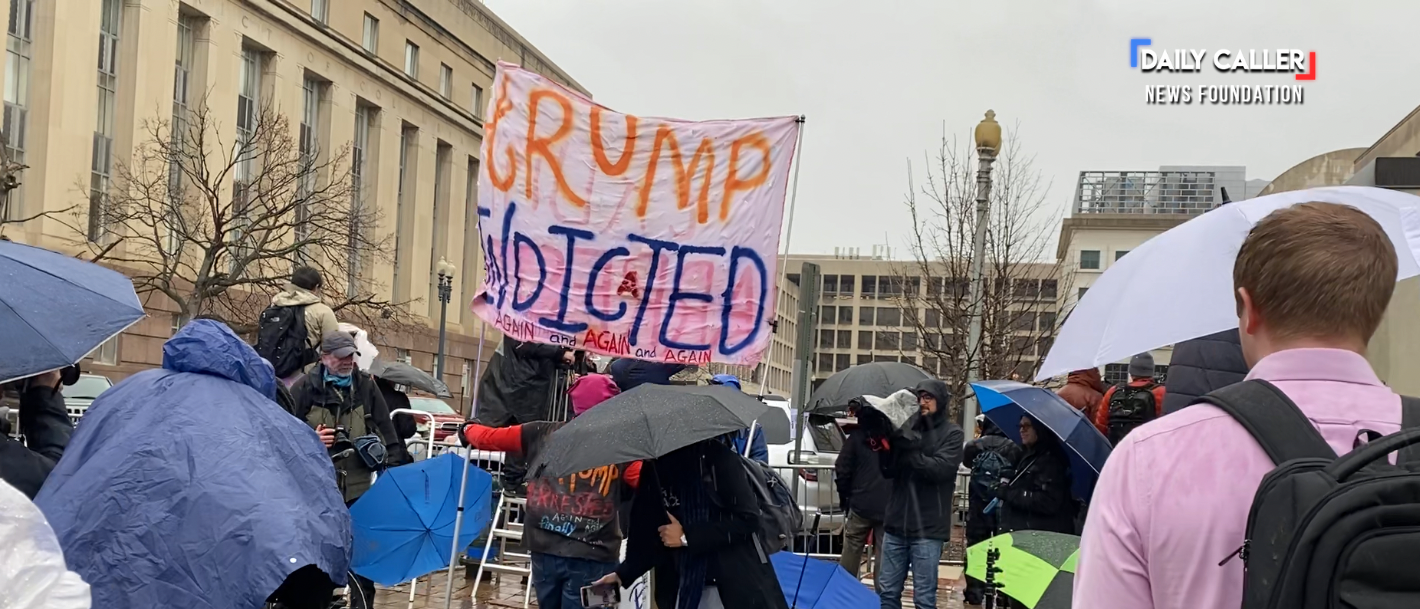Former President Donald Trump’s claim to presidential immunity from prosecution came under intense questioning Tuesday by a three-judge panel.
Surrounded by high amounts of security and media due to the former president’s attendance, the D.C. Circuit Court of Appeals heard arguments Tuesday to consider Trump’s appeal of District Court Judge Tanya Chutkan decision not to dismiss his election interference case based on presidential immunity. The panel included Judges Karen Henderson, a George H. W. Bush appointee, Michelle Childs, a Biden appointee, and Florence Pan, a Biden appointee.
“Could a president order SEAL Team Six to assassinate a political rival?” Pan asked Trump’s attorney Dean John Sauer. (RELATED: Trump Files Flurry Of Motions Seeking To Dismiss Fani Willis’ Georgia Election Case)
Sauer argued that there is “a political process that would have to occur” under the structure of the Constitution, which requires impeachment and conviction by the Senate prior to criminal prosecution. Department of Justice (DOJ) lawyer James Pearce argued this would lead to an “extraordinarily frightening future” where a president can simply resign before he is impeached and evade responsibility for a crime.
“Never in our nation’s history has a president claimed that immunity extends beyond his time in office,” Pearce argued.
“The president has a unique constitutional role,” Pearce said. “But he is not above the law.”
Sauer said authorizing prosecution of a president for official acts would open a “Pandora’s Box.” For example, it could lead to “shocking results” like indicting President Joe Biden after he leaves office for “mismanaging the border.”
Pan said Sauer’s concession that a president could be prosecuted if first impeached and convicted by the Senate seemed to mean his other arguments for immunity “fall away.” She pressed Sauer to answer whether Trump could have been “properly prosecuted” if he had been impeached on the same or related conduct as is contained in the indictment.
“The issue that falls to us is your interpretation of the impeachment judgement clause,” Pan said. “That’s all we need to decide.”
Protestor outside Trump immunity appeal arguments at D.C. Circuit (Credit: Katelynn Richardson/Daily Caller News Foundation)
Pan noted there is also an executive interest in “enforcing criminal laws.”
“I think it is paradoxical to say that his constitutional duty to take care that the laws be faithfully executed allows him to violate criminal laws,” Henderson said.
Childs and Pan both expressed hesitancy at some points to reach an answer on the immunity question at all, pointing to arguments raised in an amicus brief filed by American Oversight that the appeal is premature and the court lacks jurisdiction. Pearce urged the court to reach a conclusion “even if it entertains doubts.”
“At least since the Watergate-era 50 years ago, there has been widespread societal recognition by presidents and the executive branch that a former president is subject to criminal prosecution,” Pearce argued.
The Supreme Court shut down in December Special Counsel Jack Smith’s bid to fast-track the appeal and bypass review at the D.C. Circuit. Once the panel issues a ruling, the issue could be back before the justices if Trump chooses to appeal.
All content created by the Daily Caller News Foundation, an independent and nonpartisan newswire service, is available without charge to any legitimate news publisher that can provide a large audience. All republished articles must include our logo, our reporter’s byline and their DCNF affiliation. For any questions about our guidelines or partnering with us, please contact [email protected].

